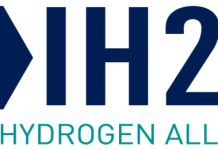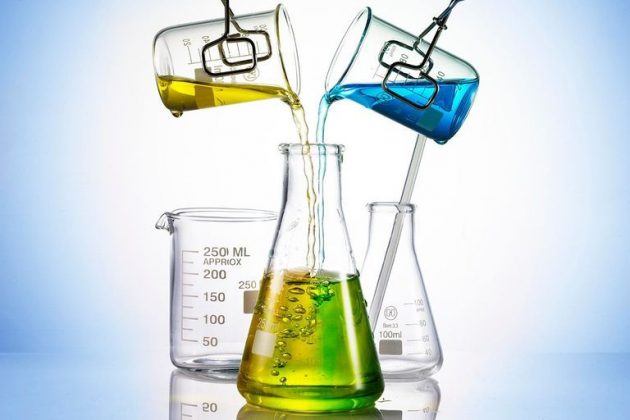This month, our columnist tries to imagine the contours a new economic order being forged by the COVID19 pandemic. It would be shaped by shifting consumer preferences and a growing xenophobia. The plastic could stage a comeback and the decline of fossil fuels may be accelerated. We have an opportunity to build a new order that is healthier and less inequitable.
COVID19 continues to rampage through the world laying waste to the established economic order. While experts of various hues don’t agree on the details, there is a broad consensus
that pandemic will effectively end only when we have a vaccine on our hands and arms. Despite politicians shooting their mouths off, a vaccine is unlikely before the last quarter of 2021. And when the vaccine is developed, it will only be the beginning of the end.
At least 7 billion dosages of the vaccine will have to be produced, stockpiled and distributed across the world – something that has never been accomplished before. Thus it is obvious that we have to make peace with the coronavirus for many years to come.
Demand Shift
It is almost impossible to name a single consumer product that does not use chemicals, and as a result, the fortunes of the chemical industry are inextricably linked to the overall economic activity. The chemical industry is regarded as a bellwether industry for monitoring economic growth and productivity. Economy is shaped by the behaviour of consumers.
And who can deny that our habits haven’t changed in the last couple of months. Some of these changes will be irrevocable, for we have been warned that a pandemic can recur again. Our psyche has been scarred by the coronavirus. We will be fearful of the virus lurking in every nook and corner. The zeal and frequency of our handwashing will never decline in the foreseeable future. As public spaces start opening up, every hand railing
and doorknob will be wiped down repeatedly with disinfectants. The demand for hand sanitisers and surface disinfectants has exploded and will continue to grow. We have seen that the coronavirus is partial to people with lifestyle diseases like diabetes and hypertension. This will create an increased health awareness among the middle and upper classes, who would shift to healthier lifestyles. This shift will have a cascading effect on many businesses, including food, nutraceuticals, pharmaceuticals and packaging. Middle class will be more circumspect and discretionary about what they spend on. They may postpone home renovation, but hasten to buy a second automobile, both decisions stemming from an avowed desire to practice social distancing. Industry has to be agile and nimble to tap into such nuances in consumer preferences.
Plastics
The humble plastic has staged a dramatic comeback in recent weeks. So has plastic pollution! Coronavirus may be inadvertently responsible for the altered public perception of plastics. The demand for single-use disposable plastics is the highest. It is perceived as a
safe and hygienic barrier between the skin and the virus. Vegetables and fruits are being sold in plastic pouches on the streets of Mumbai. With more perishables being sold
and bought online the demand for shrink-wrap films will increase. Plastic packaging will be the mainstay of food deliveries from restaurants. Acrylic shields and dividers are beginning to sprout in public places and are threatening to become a permanent fixture. More plastic is being consumed to package the increased use of sanitisers and disinfectants. Plastics are also on the frontline of the battle against the coronavirus. PPE – goggles, face shields, masks, gloves, coveralls, head covers, shoe covers – are all made out of plastic. The upsurge in plastic usage and waste has the environmentalists worried. We urgently need an innovative recycling mechanism.
Fossil Fuels
But there is a clear silver lining on another environment front. The carbon emissions fell by a whopping 17% globally during the lockdown months. The demand for fossil fuels has been dealt a crushing blow. Fossil fuels have historically bounced back after recessions
in the past. But now things are different. The renewable energy industry is better placed to
seize the opportunity and ring the death knell for the fossil fuels. Also the demand is unlikely to bounce back with the same vigour this time. Demand for air travel is likely
to remain suppressed for years to come. As more people continue to work and learn from home, commuting demand will also be low. Those who are seeking an additional automobile will prefer EV options. The scenario for fossil fuels is fraught with uncertainty and will largely depend on the directions taken by the stimulus packages announced by various governments. If they come with a “green” directive, the renewable energy industry will grow exponentially and knock out the stuffing from fossil fuels. Death of fossil fuels will have serious implications for the chemical industry as they need to scout and secure alternative feedstocks for petrochemicals.
Deglobalisation
The most anticipated fallout of COVID19 is the acceleration of deglobalisation, which has already been creeping in since the last few years. The restrictions and reluctance
to travel is not exactly conducive to global trade. Barriers to the free movement of people will stifle talent and slow down innovation and product development. Xenophobia is on the rise and politicians are leveraging it to drive their personal agenda. It will take deeper roots if the pandemic doesn’t go away quickly. Protectionism is the order of the day – every man for himself. Chemical industry which has one of the most complex supply chains is still reeling from the disruptions that began with the COVID19 outbreak in January in China. There is a growing resentment against China, which if consolidated, will drive fresh investments and capacity additions away from that country. India and some SE-Asian
countries could be beneficiaries of this rejig if they play their cards smartly.
Industry 4.0
Companies will seek to build up suppliers within a restricted geography to avoid supply chain disruptions in the future. The supply chain map is likely to be severely redrawn with producers and consumers moving closer together in a region or a zone. Such redrawing
of maps will occur even within India, which let us not forget is as big as Europe. The prevalence of COVID19 has been extremely uneven within the country leading to
many states imposing stringent restrictions on cross-border movement of people. With labour fleeing in large numbers to the safety of their homes away from the industry
hubs, revival of the economy won’t be easy. If the labour is reluctant to return, companies will have to hire and train afresh adding further to the costs. This will boost the adoption of Industry 4.0 technologies like automation, robotics, 3D printing etc to shockproof
businesses from similar jolts in future.
Epilogue
A new economic order is inevitable. What contours it will assume are uncertain. But it presents a historic opportunity to create a healthier and less inequitable world.
Readers’ responses may be sent to:
k.sahasranaman@gmail.com or
chemindigest@gmail.com

































